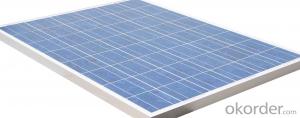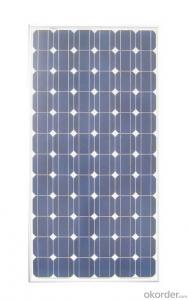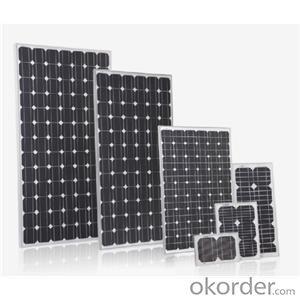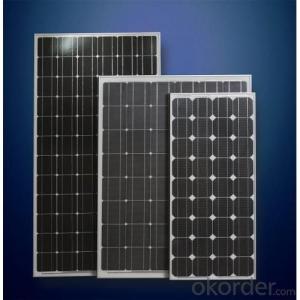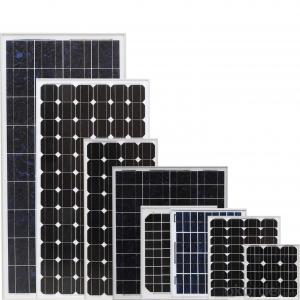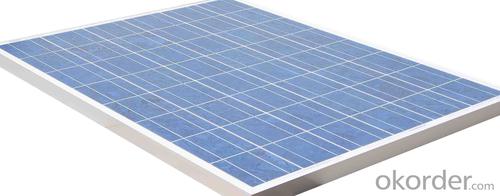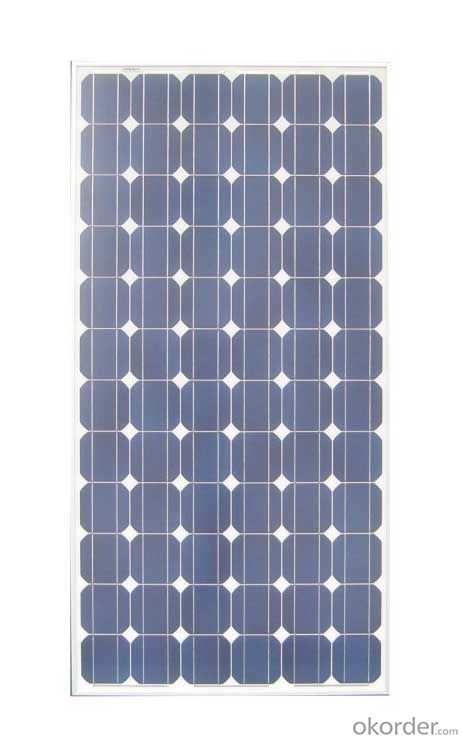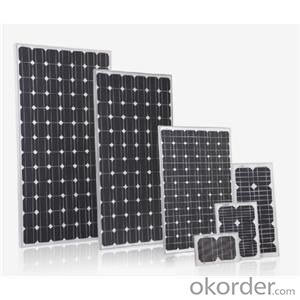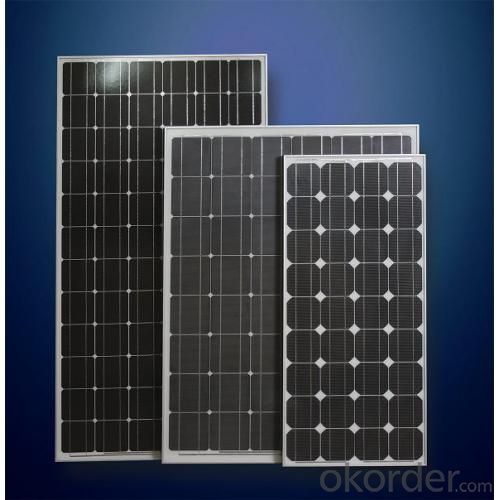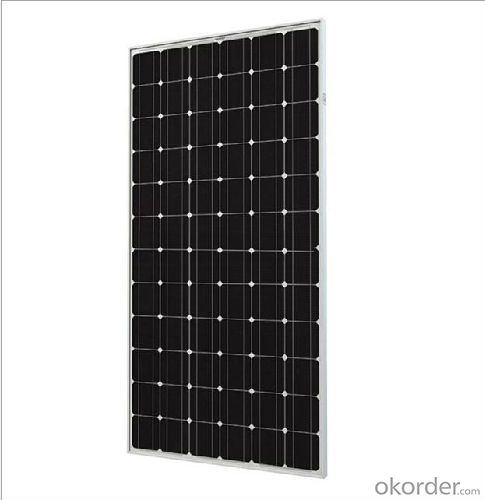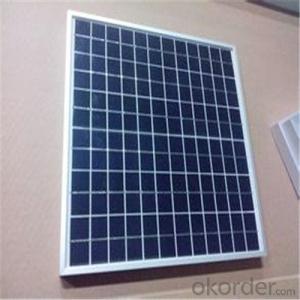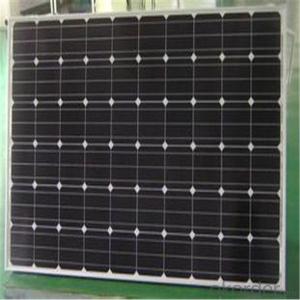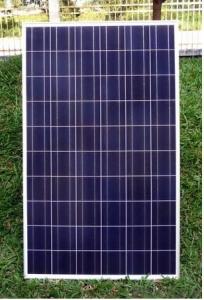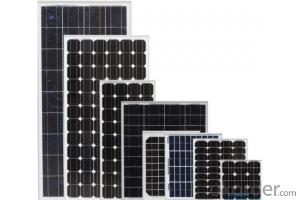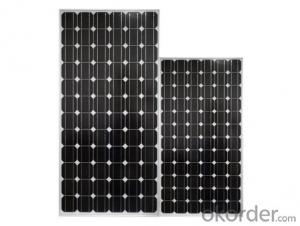Desert Solar Panels - Mono Solar Cell/PV Module with Good Price Favorites Compare 180W
- Loading Port:
- China Main Port
- Payment Terms:
- TT or LC
- Min Order Qty:
- -
- Supply Capability:
- 10000000 watt/month
OKorder Service Pledge
OKorder Financial Service
You Might Also Like
1.Structure of Solar Module Description
Solar modules, which are widely used in ground mounted utility-scale PV plants, large-scale and small civil and commercial power generating system such as BIPV combined to the grid, roof-mounted PV power system, rural electrification, communications, emergency auxiliary power. NEXTECK, as one of the solar module supplier, has the capability to offer a wide range of advanced, high performance solar modules with integrated high efficiency. Energy efficient and cost effective Mono crystalline and Polycrystalline, amorphous silicon and CIGS thin film solar cells are available. We have the right products for different applications.
2.Main Features of the Solar Module
Quick Details
| Place of Origin: | Zhejiang China (Mainland) | Brand Name: | CNBM | Model Number: | PLM-180P-60 |
| Material: | Monocrystalline Silicon | Size: | 1650*992*40mm | Number of Cells: | 60 |
| Max. Power: | 180 | Color: | Silver,Black | Quality Certifications: | PID Free, Salt Mist,Fire Test and Ammonia Gas certifications |
| International Certifications: | TUV,MCS,UL,CEC and J-pec | OME/ODM: | Yes | Solar Cells Efficiency: | 17.2% |
| Solar Panels Efficiency: | 15.3% |
Packaging & Delivery
| Packaging Detail: | Carton boxes with pallets and air bags |
| Delivery Detail: | within 15 days after arrival of the 20% TT in advance |
3.Solar Module Images
4.Solar Module Specification
Specifications
-PID Free,Salt Mist, andAmmonia gas Certifications
-Higher Efficiecny Solar Cells;
-More cost effective;
-25 years guarantee.
Product Description
High efficiency mono crystalline solar panel PLM-240P-60 series
Anti-reflective coating: AR used reduce the reflectivity enhance transmittance.
Tempered Glass: Low Iron and AR coating glass increase the power output and mechanical strength of solar module. Mechanical load ≥2400Pa , transmittance ≥91.6%
EVA: Transmittance ≥91% , Adhesive Capacity >85%
Cell: 17.9% of high efficiency solar cells to sure 15.3% module efficiency
Back sheet: Using higher quality back sheet to prevent destroying and water , it’s reflectivity ≥87%, peeling strength ≥ 40N/cm.
Aluminum Frame: Anodized aluminum alloy to effectively improve the corrosion resistance and strengt.
Certification:
![]()
Maxium system voltage 1000VDC
STC:Irradiance 1000W/m², Temperature 25°c,AM=1.5
Mechanical Characteristics:
| Cells size(mm) | 156X156 |
| Modules size(mm) | 1650X992X46 |
| No. of cells | 60(6X10) |
| Weight(KG) | 19.6 |
| No.of mounting holes | 8 |
| No.of waterspout | 16 |
Temperature Coefficient:
| NOCT | 45°C±2°C |
| Temperature coefficient of Isc | 0.05%/°C |
| Temperature coefficient of Voc | -0.33%/°C |
| Temperature coefficient of Pmax | -0.44%/°C |
| Power Tolerance | 0/+3% |
| Working temperature | -40°C to 85°C |
Qualification Test Parameters:
| Temperature cycling range | -40℃~85℃ |
| Humidity freeze, damp heat | 85%RH |
| Static load front and back (e.g. wind) | 2400 pa (50psf) |
| Front loading (e.g. snow) | 5400 pa (113psf) |
| Hailstone impact | 25mm ( 1 inch) at 23 m/s (52mph) |
Packaging & Shipping
Package Information:
| Type | Frame | PCS/Pallet | Pallets/Container | PCS/Container |
| 40HQ 1650X992 156P 60cells | 40/46 | 23 | 28 | 784/700 |
Our Services
Product Wattanty:
10 years for the workmanship
12 years power output no less than 90%
25 years power output no less than 80%
5.FAQ of Solar Module
1. Q: Do you have your own factory?
A: Yes, we have. Our factory located in Jiangyin city, jiangsu province.
2. Q: How can I visit your factory?
A: Before you take off from your country, please let us know. We will show you the way,or arrange time to pick you up if possible.
3. Q: Do you provide free sample?
A: Usually we do not offer free sample
4. Q: Could you print our company LOGO on the nameplate and package?
A: Yes, we can do that.
5. Q: Do you accept custom design on size?
A: Yes, if the size is reasonable.
- Q: Are solar panels safe?
- Yes, solar panels are safe. They do not produce any harmful emissions or pollutants during operation, and the technology has been extensively tested and regulated to ensure safety. However, it is important to follow proper installation and maintenance procedures to minimize any potential risks.
- Q: Can solar panels be installed on a house with a flat roof?
- Yes, solar panels can be installed on a house with a flat roof.
- Q: i check the diodes in the backside of solar panels it reads out to be 0.433 each give me the same result but i was amazed when i check out the last two one which on clamp meter screen give me ''0L'' what this means? is that diode have malfunctions??is this reasons that the output of solar has been decreased?
- First of all, make sure that you are taking readings in the dark (with the solar panel indoors and covered). 0.433 is a reasonable forward voltage for a Schottky diode. Ideally, it diode should read open one way (possibly OL for your meter), and 0.4 the other way. If it's reading OL both ways, the diode is bad. You can either unsolder it or cut it out and verify that it is bad.
- Q: How much space do I need for solar panels?
- The amount of space required for solar panels depends on various factors such as the size and type of panels, the efficiency of the panels, and the energy needs of your household or facility. On average, a 1 kW solar panel system typically requires around 100 square feet of space. However, it is best to consult with a solar installer or expert who can assess your specific requirements and provide accurate information regarding the space needed for solar panels.
- Q: Do solar panels require regular cleaning?
- Yes, solar panels do require regular cleaning to maintain their efficiency. Dust, dirt, bird droppings, and other debris can accumulate on the surface of the panels, reducing their ability to generate electricity. Regular cleaning ensures optimal performance and maximizes energy output.
- Q: What would it take to make a heater for a small solar panel. I am looking into making a heater for a livestock tank to keep ice melted. I know that heaters take alot of energy to run, but my theory is that if heated mirrors on a car can melt ice with low voltage and im sure not extreme heat (40-60 degrees) then making a heater with just high enough temperature to keep from icing over and melting ice is possible. Where do I start? I would like to use an inexpensive solar panel that will generate enough heat to keep ice from forming and melt it at the beginning of the day. How can you make such a heater and apply Ohms law so that it will function correctly, what Wattage will the pannel need to produce to generate enough heat for the heater. The device will only have to be large enough to melt a spot large enough for an animal to drink.
- Short answer is yes. Good to start out a large tank, or big rock to mount your collectors on. Something the stock won't eat or push over. I would start with a swimming pool solar collector. It is just a big piece of black plastic aimed at the winter sun. A collector with insulation and covers will give more heat per sq foot and cost more. Big mirrors and a black painted stock tank might be enough. Insulation of the tank might help a lot. Is the water liquid when pumped up the tank? Do you truck the water in? Is there any electric power wired there or near by? Electric solar collectors can pump and heat water and charge batteries, but it is also possible to circulate water using a thermosyphon set up. You don't have to use photocells. If it gets cold enough some collectors can freeze solid and damage themselves. There are collectors that contain two loops one water the other antifreeze.
- Q: They absorb solar heat and transform it into electricity, so there should be less heat left to warm the planet. Shouldn't we at least plaster all the world's deserts with them?
- The opposite - they heat the Earth up. The ground underneath might be brown or green or sand. The solar panels are Black. They absorb more radiant energy. Solar electricity is energy and somewhere down the wire will produce heat. Solar's saving grace is that it has the same heating effect year after year. But greenhouse gasses have a cumulative effect. The excess gasses produced in year one are added to the gasses in year two, etc. For instance say the heating of soalr cells is 5 times (5s) that of greenhouse gasses (g). Year - Total Heating - 5s + g 2 - 5s + 2g 3 - 5s + 3g 4 - 5s + 4g 5 - 5s + 5g 6 - 5s + 6g 7 - 5s + 7g 8 - 5s + 8g 9 - 5s + 9g 0 - 5s + 0g etc... In 50 years you have 50 - 5s + 50g
- Q: Can solar panels be used for charging electric vehicles?
- Yes, solar panels can be used for charging electric vehicles. Solar panels convert sunlight into electricity, which can be used to charge the batteries of electric vehicles through a charging station or directly through a solar-powered carport. This provides a sustainable and renewable source of energy for electric vehicle charging.
- Q: I can't figure out how to charge a Ni Cd (BD 8V Firestorm) battery directly with a solar panel so I've come up with an alternative which might or might not work. I thought I would connect an inverter (I found a nice 400W for $30) to my trucks battery and plug the BD Firestorm battery charger into the inverter. Then I was thinking I could use a 5W solar panel to trickle charge the truck battery and keep it connected after the Ni Cd is charged to ensure the truck battery is topped off. The truck would not be running during this process. Will this solution work? Is there a better solution?
- Your 5W solar panel has to put out about 5 volts or higher to charge a 2 volt battery. 5 watts at 5 volts is only 0.3 amps, which is only enough to handle the internal leakage inside a large battery, plus a bit. If you have a 00 amp-hour battery, that panel would take 300 hours of bright sunlight to charge it. But I do agree that it will keep the truck battery charged as long as it gets sun. Make sure you put a diode in series between the panel and the battery to prevent the battery from discharging through the panel when the sun goes behind a cloud. I'd be worried that if you charged the 8 volt battery frequently, the panel would not be able to replace the lost charge, and your 2 volt battery would wind up discharged. That 8 volt battery is .2 amp-hrs (if I got the correct one). That is 27 watt-hours. Allowing for losses, you car battery will have to deliver over 30 watt hours to charge it. Your solar panel will take over 6 hours of bright sun to make up that difference. That is over 24 hours this time of year. So if you recharged it more than once every 2 days, you will lose charge in the truck battery. .
Send your message to us
Desert Solar Panels - Mono Solar Cell/PV Module with Good Price Favorites Compare 180W
- Loading Port:
- China Main Port
- Payment Terms:
- TT or LC
- Min Order Qty:
- -
- Supply Capability:
- 10000000 watt/month
OKorder Service Pledge
OKorder Financial Service
Similar products
Hot products
Hot Searches
Related keywords
